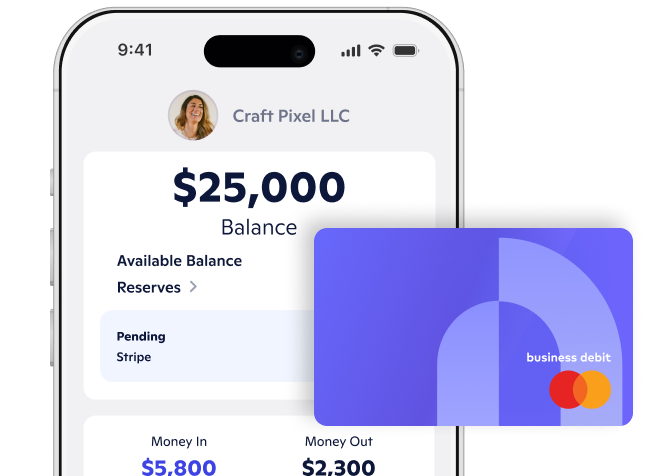
our accounting system provides key information about your company’s financial situation, including its profits and losses, assets and liabilities, and cash flow. There are two primary methods of accounting: cash basis and accrual basis.
In cash basis accounting, transactions are recorded when cash changes hands. Revenue is recognized when payment is received, and expenses are recognized when paid.
In accrual basis accounting, transactions are recorded when they occur, not when money changes hands. Accrual accounting provides a more precise picture of a company's financial health by aligning income and related expenses in the same period, facilitating a better comparison of revenues and expenses.
Definition and explanation of accrual basis accounting
A few key principles and concepts guide the accrual method:
- Revenue recognition principle: Revenue should be recognized and recorded when it is realized or realizable, and when it has been earned, not when cash is received.
- Matching principle: Expenses are matched with revenues. Expenses incurred to generate revenue should be recognized in the same period as the revenue earned due to those expenses.
- Expense recognition principle: Also known as the "incurred" principle, this states that expenses should be recognized and recorded in the accounting period in which they were incurred, not when they were paid.
- Periodicity concept: This concept involves the division of an enterprise's ongoing activities into periods of time, such as months, quarters, or years, so that accurate reports can be prepared for those periods.
Accrual basis accounting differs from cash basis accounting in the following ways:
- Timing of transactions: In accrual accounting, income is recorded when earned, and expenses are recorded when they are incurred, regardless of when the cash is received or paid. In contrast, cash accounting records income when cash is received and expenses when paid.
- Complexity: Accrual accounting is more complex than cash accounting because it requires tracking receivables and payables. Cash accounting only records when cash is received or spent.
- GAAP compliance: Accrual accounting complies with Generally Accepted Accounting Principles (GAAP). Cash accounting, however, does not.
Benefits of accrual basis accounting
Accrual basis accounting has significant benefits over cash basis accounting for growing businesses:
- Accurate financial reporting: Recording revenues when earned and expenses when incurred provides a more comprehensive and detailed view of financial health. Cash accounting can provide a distorted view because it could show a high cash flow even when the company is in debt or a low cash flow even when the company is profitable.
- Matching revenue with expenses: This helps you understand the true cost of producing revenue and the actual profitability of goods and services, which is crucial for managing operations and making informed business decisions.
- Improved long-term financial planning and forecasting: Accrual accounting allows for a more accurate view of profitability trends over time, as it ensures that all revenue and expenses are recorded in the appropriate period, irrespective of when the cash is received or paid.
- GAAP compliance: This is necessary for many businesses and is typically required by lenders, investors, and in certain cases, tax authorities.
Implementing accrual basis accounting
Implementing accrual basis accounting involves a few critical steps:
- Understand the accrual method: The first step is to thoroughly understand what accrual basis accounting involves, including the principles of revenue recognition, expense recognition, and matching.
- Set up an accounting system: You'll need an accounting system that can handle accrual basis accounting. There are software solutions available that can help you with this, including QuickBooks, Xero, and others. (If you have a Novo business checking account, you can integrate with a variety of popular accounting tools.)
- Record transactions: Record all transactions when they occur, not when money changes hands. This includes sales on credit and purchases on account.
- Track accounts receivable and payable: Keep a record of the amounts that customers owe you and the amounts you owe others.
- Reconcile accounts: Regularly reconcile your accounts to ensure all transactions have been recorded correctly.
Transitioning from cash basis accounting to accrual basis accounting
When you’re ready to make the switch to accrual basis accounting, you’ll need to do the following:
- Identify outstanding receivables and payables: Determine what money is owed to you and what money you owe. These will become your accounts receivable and payable.
- Adjust your financial statements: Adjust your income statement and balance sheet to include these amounts. This may involve recognizing revenue or expenses earned or incurred in a previous period but not recorded under the cash method.
- Establish new processes: Develop new accounting processes that record transactions when they occur, not when cash is received or spent.
Key considerations and challenges
Despite its advantages, changing to accrual basis accounting can be challenging in the following ways:
- Increased complexity: Accrual accounting is more complex than cash basis accounting and may require additional time and resources.
- Need for accounting knowledge: It requires a solid understanding of accounting principles. This may necessitate hiring a professional accountant or investing in training.
- Record keeping: Accurate record-keeping is essential for tracking receivables and payables, recognizing revenue and expenses, and reconciling accounts.
- Tax implications: Changing your accounting method may have tax implications. For example, recognizing more income sooner could increase your tax liability. It's important to consult with a tax professional before making the switch.
- Cash flow management: While accrual accounting provides a more accurate picture of profitability, it doesn't directly track cash flow. You'll have to separately monitor cash to ensure you have enough to meet your obligations.
Accrual basis accounting vs. cash basis accounting
When deciding between accrual and cash basis accounting, consider the pros and cons of each:
Pros and cons of accrual basis accounting
Pros:
- More accurate financial picture
- Compliant with GAAP
- Facilitates business planning
Cons:
- Increased complexity
- Doesn't directly reflect cash flow
Pros and cons of cash basis accounting
Pros:
- Simpler to implement and maintain
- Provides accurate cash flow tracking
Cons:
- Can provide a misleading financial picture
- Noncompliant with GAAP
Choosing the most suitable method for your small business
The choice between accrual and cash basis accounting largely depends on the nature and scale of your business. If you run a small business that mostly deals with cash transactions, then the simplicity of the cash basis method might make it the better choice.
However, as your business grows, you might need to switch to accrual accounting for a more accurate reflection of your financial health and to comply with GAAP if applicable. Accrual accounting can also be more helpful if you're looking to scale your business or attract investors because it provides a clearer picture of long-term profitability.
Next steps
Both cash-basis and accrual-basis accounting have their merits. Cash basis accounting, with its simplicity and direct reflection of cash flow, may be ideal for small businesses dealing mainly in cash transactions. However, it can sometimes offer a misleading picture of a business's long-term financial health.
Accrual basis accounting, while more complex, provides a more accurate picture of a company's financial situation by recognizing revenues and expenses as they occur, not when cash changes hands. It also aligns with GAAP, making it necessary for larger businesses. Despite its complexity, its benefits—comprehensive financial insights, accurate long-term planning, and compliance with standard accounting principles—make it a compelling choice.
Novo’s business banking can help you keep track of your revenue and expenses. Sign up for a free Novo account today.
Novo Platform Inc. strives to provide accurate information but cannot guarantee that this content is correct, complete, or up-to-date. This page is for informational purposes only and is not financial or legal advice nor an endorsement of any third-party products or services. All products and services are presented without warranty. Novo Platform Inc. does not provide any financial or legal advice, and you should consult your own financial, legal, or tax advisors.
Novo is a fintech, not a bank. Banking services provided by Middlesex Federal Savings, F.A.: Member FDIC.
%201.png)
.png)




